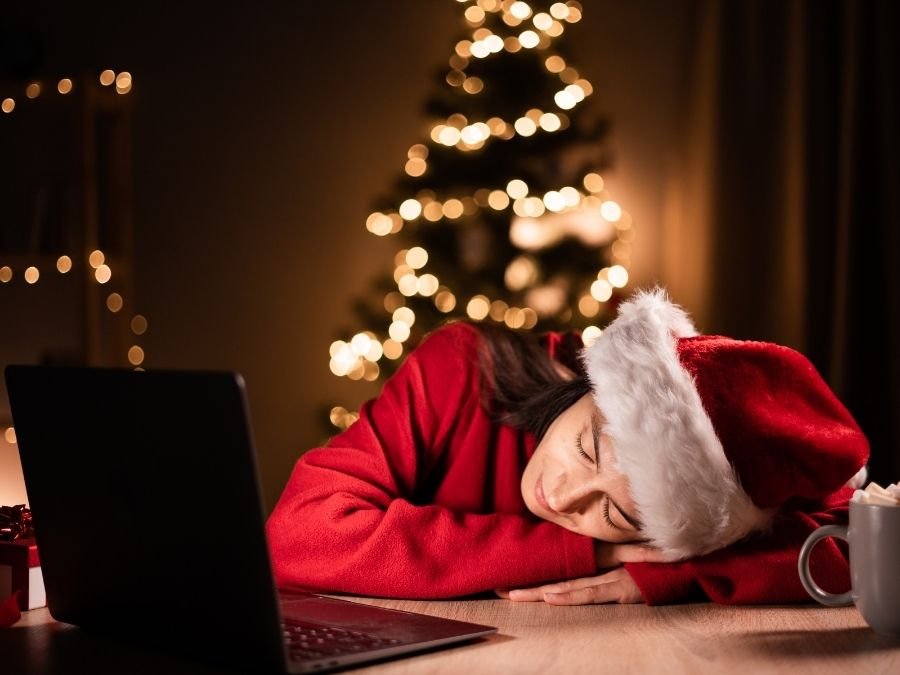Managing Sleep During the Holidays
Managing your sleep during the holidays can feel like a balancing act. With late-night gatherings, busy travel schedules, and the allure of holiday cheer, rest often takes a back seat. However, quality sleep is critical—not just for maintaining energy but for truly enjoying this festive season. When you’re well-rested, you’re better equipped to savor the moments that make the holidays special.
The holidays come with unique challenges that disrupt even the best sleepers. Late-night celebrations are a big part of the problem. Family gatherings and festive parties often run late, cutting into your usual bedtime. Travel stress—like jet lag, noisy environments, or unfamiliar beds—adds to the difficulty. Increased screen time also takes its toll, as blue light from electronic devices has been shown to suppress melatonin, delaying sleep onset and reducing sleep quality. Let’s not forget the indulgent meals, sugary treats, and holiday cocktails that can interfere with a good night’s rest.
Here’s how to protect your sleep during this busy time without missing out on the fun.
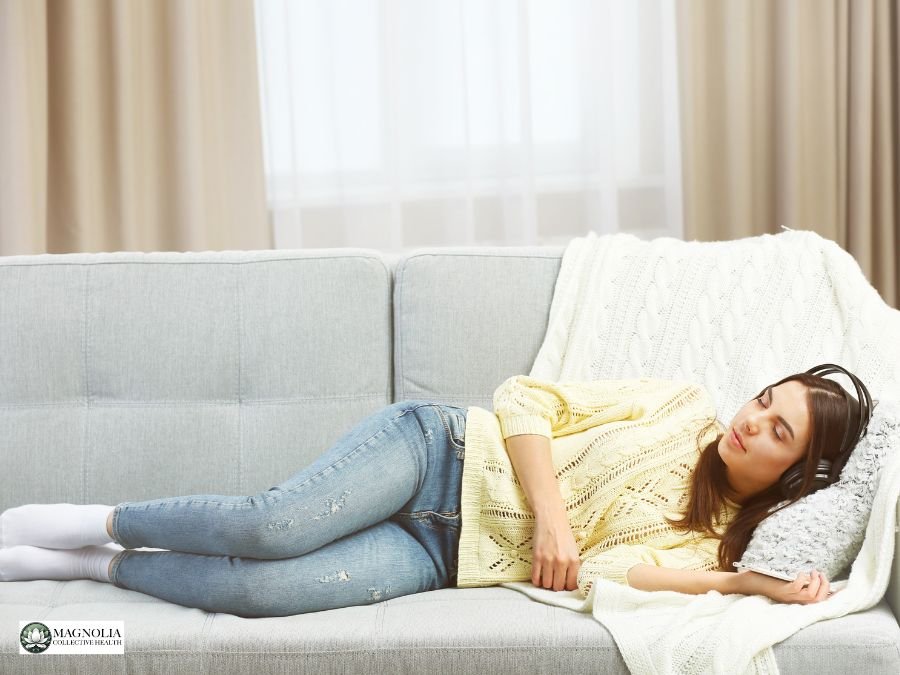
Planning ahead is one of the most effective ways to ensure you stay rested.
Start by maintaining a consistent sleep schedule, even on weekends. Studies suggest that sticking to regular sleep and wake times can improve overall sleep quality and help prevent insomnia, even during stressful periods.
Incorporating a bedtime routine can also be beneficial.
Simple rituals like reading a book, stretching, or listening to calming music can signal to your body that it’s time to wind down. If travel is on your agenda, pack items that bring comfort—a travel pillow, a blackout eye mask, or your favorite blanket can make unfamiliar sleeping environments feel a little more like home.
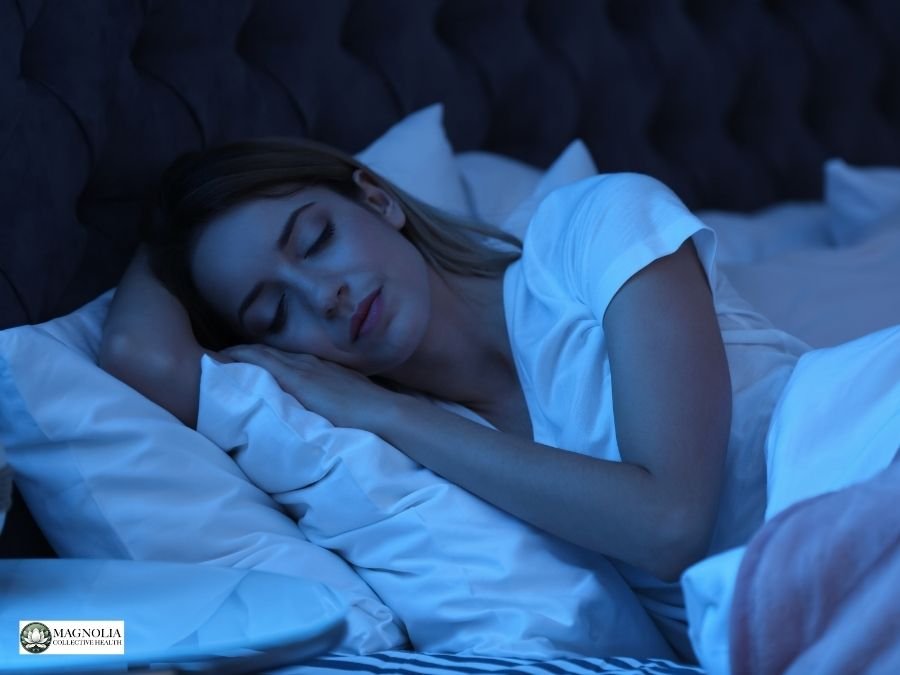
Your sleep environment plays a crucial role in how well you rest.
At home, keeping your bedroom cool, dark, and quiet is key. Blackout curtains can block out holiday lights, and a fan or white noise machine can help mask household noises. If you’re traveling, take steps to optimize your sleeping space. Research has shown that controlling environmental factors like noise and light can significantly improve sleep duration and quality. Request a quiet hotel room away from elevators or stairwells, or use a white noise app to drown out unfamiliar sounds. If you’re staying with family, consider asking for a space where you can get some privacy for a more restful night.
Even with the best intentions, disruptions are inevitable.
Jet lag is a common culprit for holiday travelers. To minimize its effects, gradually adjust your schedule a few days before your trip. Spending time outdoors during daylight hours once you arrive can also help reset your circadian rhythm. If holiday events run late, a short nap—15 to 20 minutes—can help you recharge without interfering with nighttime sleep. Just be careful not to oversleep, as longer naps can leave you feeling groggy and make it harder to fall asleep later.
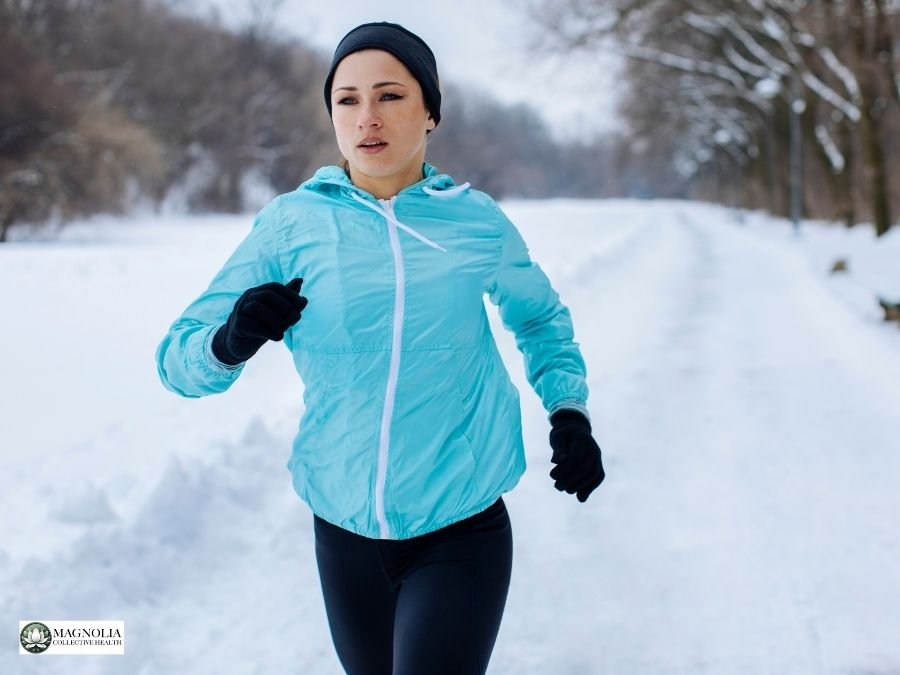
Staying active during the day can also support better sleep.
A brisk walk after a holiday meal or a quick morning workout not only helps you stay fit but also promotes deeper, more restorative rest.
What you eat and drink has a significant impact on your sleep quality.
While it’s fine to indulge in holiday treats, try not to overdo it, especially in the evening. Heavy meals and sugary desserts can lead to discomfort, making it harder to relax and fall asleep. Alcohol, while it may initially make you feel sleepy, can disrupt your sleep cycle later in the night. Similarly, caffeine can linger in your system for hours, so it’s best to cut it off by mid-afternoon.
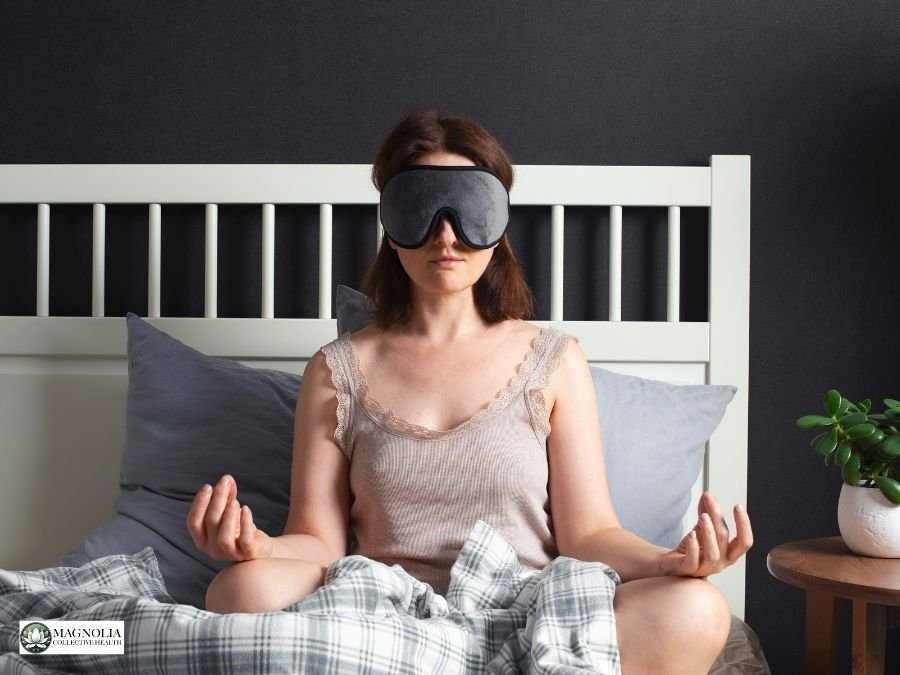
Practice meditation to ease holiday stress before bedtime
Stress and anxiety are common during the holidays, and they can take a toll on your sleep. Relaxation techniques like deep breathing, meditation, or progressive muscle relaxation can help calm your mind before bed. Journaling is another effective strategy—writing down your thoughts or to-do lists can clear your mind, making it easier to unwind.
Setting boundaries is equally important.
The holidays can be overwhelming with back-to-back commitments, so don’t hesitate to say no to activities that overextend you.
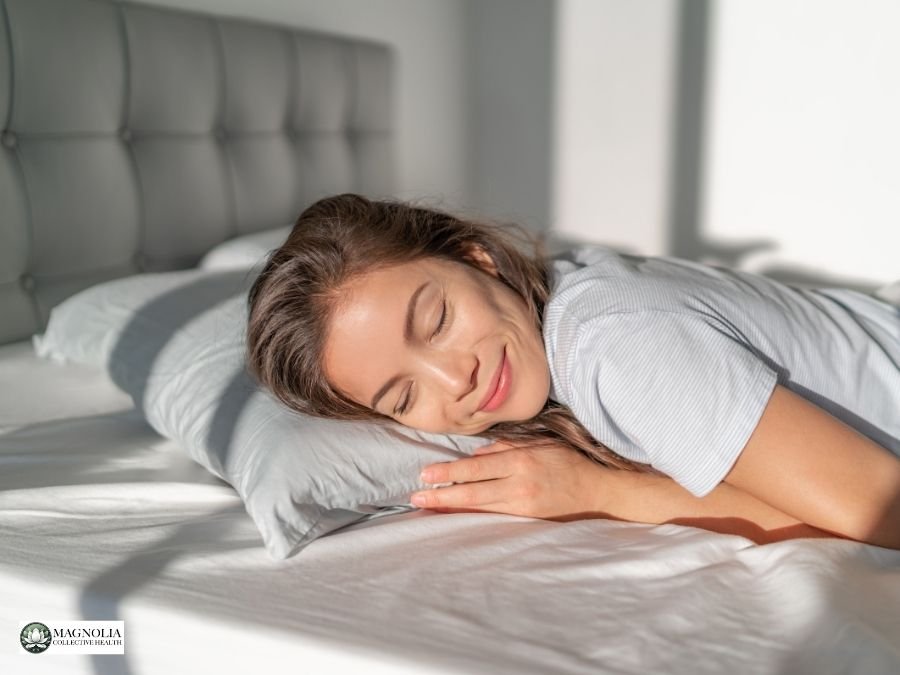
Families face unique challenges during the holidays, particularly when it comes to kids’ sleep schedules. Keeping children on a consistent routine can make a significant difference in maintaining order at bedtime. If you’re navigating late-night socializing, plan ahead by taking a short nap earlier in the day or winding down as soon as you return home. Travel fatigue can also disrupt sleep, so use travel time to rest when possible, whether it’s reclining on a plane or switching drivers during a road trip.
The holidays don’t have to come at the expense of your sleep. By preparing in advance, optimizing your environment, and being mindful of your habits, you can strike a balance between rest and celebration. Good sleep not only keeps you energized but enhances your ability to enjoy the moments that matter most. This season, make rest a priority—it’s a gift to yourself that will make every other holiday experience even better.
References
- Chang, A. M., Aeschbach, D., Duffy, J. F., & Czeisler, C. A. (2015). Evening use of light-emitting eReaders negatively affects sleep, circadian timing, and next-morning alertness. Proceedings of the National Academy of Sciences, 112(4), 1232-1237. https://doi.org/10.1073/pnas.1418490112
- Buxton, O. M., & Marcelli, E. (2010). Short and long sleep are positively associated with obesity, diabetes, hypertension, and cardiovascular disease. Social Science & Medicine, 71(5), 1027-1036. https://doi.org/10.1016/j.socscimed.2010.05.041
- Watson, N. F., Martin, J. L., Wise, M. S., Carden, K. A., Curhan, G. C., & Rosekind, M. R. (2017). Delayed bedtime and insomnia symptoms in adults. Journal of Clinical Sleep Medicine, 13(10), 1157-1163. https://doi.org/10.5664/jcsm.6770
- Basner, M., Babisch, W., Davis, A., Brink, M., Clark, C., Janssen, S., & Stansfeld, S. (2014). Auditory and non-auditory effects of noise on health. The Lancet, 383(9925), 1325-1332. https://doi.org/10.1016/S0140-6736(13)61613-X
- Sack, R. L., Auckley, D., Auger, R. R., Carskadon, M. A., Wright, K. P., & Vitiello, M. V. (2007). Circadian rhythm sleep disorders: Part I, basic principles, shift work, and jet lag disorders. Sleep, 30(11), 1460-1483. https://doi.org/10.1093/sleep/30.11.1460
- Milner, C. E., & Cote, K. A. (2009). Benefits of napping in healthy adults: Impact of nap length, time of day, age, and experience with napping. Journal of Sleep Research, 18(2), 272-281. https://doi.org/10.1111/j.1365-2869.2008.00718.x
- Roehrs, T., & Roth, T. (2001). Sleep, sleepiness, and alcohol use. Alcohol Research & Health, 25(2), 101-109.
- Driver, H. S., & Taylor, S. R. (2000). Exercise and sleep. Sleep Medicine Reviews, 4(4), 387-402. https://doi.org/10.1053/smrv.2000.0090

